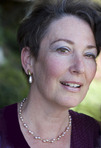A Word about Language
Many editors, publishers and readers lament what they consider a decline in the quality of written material, which they attribute to the new phenomenon of eBook publishing. Writers, gripped by their creative urge to pour ink on paper, rush to offer their stories to readers, skipping the necessary checks and balances offered by the traditional publication process. Faster turnaround time for bringing a book to market is happening, many times, at the expense of good grammar, well-structured punctuation, and careful editing. Perhaps an indication of this is the fact that this year, no winner has been announce for the Pulitzer Prize.
For example, check out the newly released book Switched by the indie-writer sensation Amanda Hocking. To date, there are currently 658 customer reviews on Amazon and 6440 on Barnes & Noble but at a closer look, a lot of them complain about flawed writing, and beseech her to seek a professional editor. However, her success--in spite of the flawed language--should by no means be taken lightly. Her readers care about her writing enough to place this amazing number of customer reviews on a variety of reading sites. Obviously, she gives voice to her audience.
All agree that the one place where the rules are relaxed is dialogue, because each character has his/her own speech pattern, which is an expression of emotions and at the same time, a mask. Because of this duality, a character may stutter, speak in a lousy grammar, with contractions and fragments. But the author is above the characters. She is god, so normally we expect good use of language, so that our reading can flow unhindered by sloppy writing mistakes. At the hand of masterful writers--writers who can stun you with a unique turn of phrase, writers whose command of an extensive vocabulary is unquestionable, and whose occasional use of slang is done with deliberate intent--language comes springing to life. Normally. Yes, that’s what I’ve just said, because every rule has an exception. How do you judge a story that is told not by the all-knowing author, who is floating from above and can see into the hearts and minds of her characters--but by the character? Case in point: The Catcher in the Rye, a story written in a first-person narrative from the point of view of its protagonist. Because of the book’s vulgar language, it was frequently censored. In 1960 a teacher was fired for assigning the novel in class; he was later reinstated. Between 1961 and 1982, The Catcher in the Rye was the most censored book in high schools and libraries in the United States. And yet today, it is recognized as an American classic, giving voice to teenage confusion, angst, alienation and rebellion. This voice is unique. This book, and some of the ones being written today in the phenomenal wake of a literary revolution, will add, in time, to our discourse about language.
In another post, I will discuss in detail the contrast between the language of the two main characters in Apart From Love. How can they connect, when one of them is refined and has an abundantly large vocabulary , the other has atrocious grammar and no words with more than two syllables.
Stay tuned.

For example, check out the newly released book Switched by the indie-writer sensation Amanda Hocking. To date, there are currently 658 customer reviews on Amazon and 6440 on Barnes & Noble but at a closer look, a lot of them complain about flawed writing, and beseech her to seek a professional editor. However, her success--in spite of the flawed language--should by no means be taken lightly. Her readers care about her writing enough to place this amazing number of customer reviews on a variety of reading sites. Obviously, she gives voice to her audience.
All agree that the one place where the rules are relaxed is dialogue, because each character has his/her own speech pattern, which is an expression of emotions and at the same time, a mask. Because of this duality, a character may stutter, speak in a lousy grammar, with contractions and fragments. But the author is above the characters. She is god, so normally we expect good use of language, so that our reading can flow unhindered by sloppy writing mistakes. At the hand of masterful writers--writers who can stun you with a unique turn of phrase, writers whose command of an extensive vocabulary is unquestionable, and whose occasional use of slang is done with deliberate intent--language comes springing to life. Normally. Yes, that’s what I’ve just said, because every rule has an exception. How do you judge a story that is told not by the all-knowing author, who is floating from above and can see into the hearts and minds of her characters--but by the character? Case in point: The Catcher in the Rye, a story written in a first-person narrative from the point of view of its protagonist. Because of the book’s vulgar language, it was frequently censored. In 1960 a teacher was fired for assigning the novel in class; he was later reinstated. Between 1961 and 1982, The Catcher in the Rye was the most censored book in high schools and libraries in the United States. And yet today, it is recognized as an American classic, giving voice to teenage confusion, angst, alienation and rebellion. This voice is unique. This book, and some of the ones being written today in the phenomenal wake of a literary revolution, will add, in time, to our discourse about language.
In another post, I will discuss in detail the contrast between the language of the two main characters in Apart From Love. How can they connect, when one of them is refined and has an abundantly large vocabulary , the other has atrocious grammar and no words with more than two syllables.
Stay tuned.
Published on April 16, 2012 14:35
No comments have been added yet.



